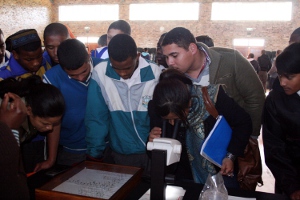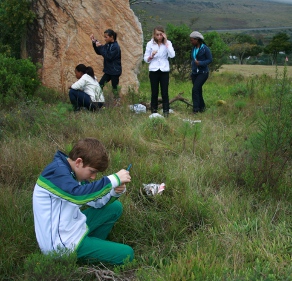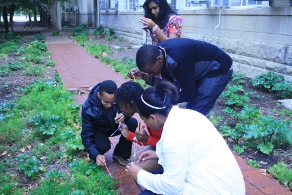Iimbovane engages learners at WCED Science Expo in the Overberg District
Iimbovane took part in this year’s Science Expo that was held on Friday 5th August 2011 at Swartberg Primary School. Several schools from the Overberg district were also present at the Expo and they showcased their projects which consisted of interesting topics such as recycling, human sense of smell, how to keep cut flowers fresher for longer, to name but a few.


